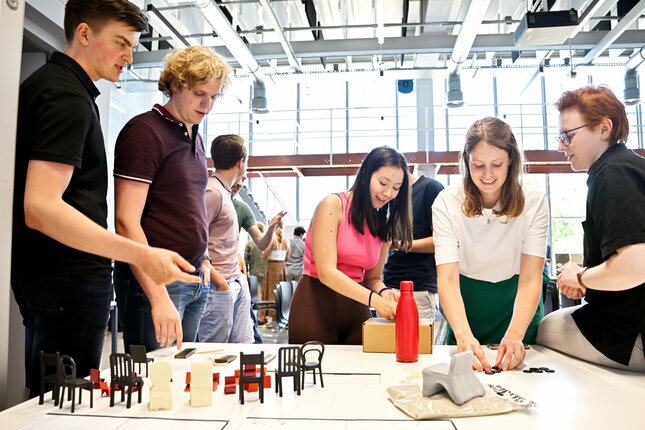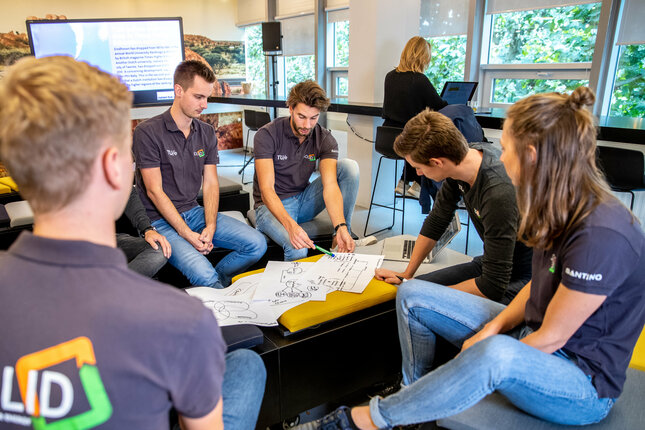How dealing with uncertainty helps students develop

What do a solar camper, an artificial heart, and a firefighting drone have in common? They are created by engineers of the future.
These engineers of the future work on urgent societal challenges. Real-world, open-ended challenges from industry, government, and society. The societal challenges are complex and can’t be solved by selecting a clever technological solution from a single field. For example, how do we ensure clean, affordable energy? Sufficient housing? Food for all? And how can we age healthily, as life expectancy increases?
These challenges require creative solutions based on collaboration and communication. So, these engineers of the future need to be able to pitch their ideas, deal with uncertainty, and work in interdisciplinary teams with an entrepreneurial mindset.
At TU/e innovation Space, we enable students to become the engineers of the future, through Challenge-Based Learning (CBL). Students learn by solving real-world challenges in an interdisciplinary team. Together with partners from the Brainport region, they tackle the challenges that society faces, moving from dream to demo to impact.
Students designing their own learning path

Each year, more than 2,800 students follow one of the many courses TU/e innovation Space facilitates for the TU/e programs. Every TU/e student from every program can enroll in a CBL challenge that suits them.
While working on these challenges, students develop the competences they need in their future engineering career and they deepen their knowledge and apply it in context. They are able to look at a problem from different perspectives, plan their own projects and communicate their findings. Their learning process is very effective, as they are highly motivated to work on and learn from real-world societal challenges in an entrepreneurial way. They are in the driver's seat of their own learning. At the same time, the university context is a safe space for try-outs, prototyping and failure.
TU/e innovation Space also hosts around 40 student teams where over 650 students enjoy extra-curricular learning by working on societal challenges. And thousands of students weld, mill and 3D print their design prototypes in our prototyping labs.